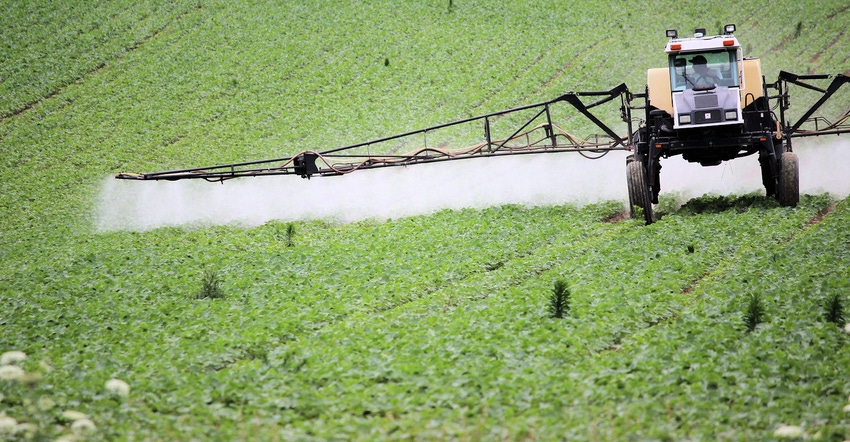
The number of dicamba-related complaints coming into the Missouri Department of Agriculture continues to rise. As of 10:30 a.m. yesterday, there were 145 official complaints related to dicamba drift.
Missouri Director of Agriculture Director Chris Chinn ordered a stop all sales and use of dicamba products last week. She says it was not a decision her department took lightly. "We did not want to take the action that we took," she says. However, Chinn noted that the growing number of farmer complaints, rivaling that of last year, could not be overlooked.
"We have farmers on both sides of the issue," she says. "There are farmers who are truly hurt, and for some it is the second year they have been damaged. We needed to hit the pause button [on this technology]."
However, the order raised some questions. Here are five things regarding the order Chinn wants you to know.
1. A new state label is in the works. The state ag department is working with companies to create a new, specific label for Missouri. "It would have new guidelines to guarantee successful application of their products," she says.
Some possible changes are to requirements like wind speed. The department looked at other states and found label restriction to 10 mph; in Missouri it is at 15. Lowering the wind speed may reduce the off-target movement.
2. Companies are cooperating. Chinn says that her department has been working with the makers of Engenia, XtendiMax and FeXapan for the past three weeks. "We are all working toward ensuring the success of our farmers with this technology." BASF has already provided information to the department. "Because we believe it is important for growers to be able to continue to access Engenia herbicide at this critical point in the 2017 season, we have already proposed the text of such a label to Missouri, according to their direction," the company said in a written statement.

Chris Chinn, Missouri Ag Director

Chris Chinn, Missouri Ag Director
3. It is not just the big three. Farmers need to read labels to make sure their herbicide does not contain dicamba. The order lists the three approved products for use on dicamba-resistant field crops — FeXapan plus VaporGrip Technology, Engenia, and XtendiMax with VaporGrip Technology — but it does not stop there. The stop sale and use order pertains to dicamba found in products used for pasture weed control as well. Here is a list of all dicamba products included in the order.
4. The ban is on agriculture use only. Some question if homeowner lawn and garden dicamba containing herbicides are included under the order. Chinn says no. It is only dicamba products labeled for agricultural uses that are included.
5. Protection is the priority. Chinn says the action was not only to protect farmers, but also the technology. There is the possibility that when chemical technology like this moves off-target, it can create weed resistance, Chinn says. Temporarily stopping the sale and use of dicamba products allows time for companies, farmers and researchers to see if changes can be made to protect this technology going forward. "This is an important tool for our farmers with regard to weed control," she says. "We need to protect the technology for future use."
About the Author(s)
You May Also Like






